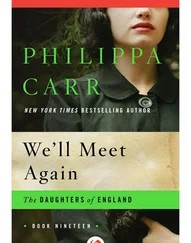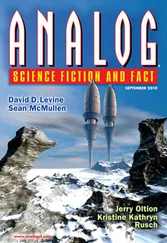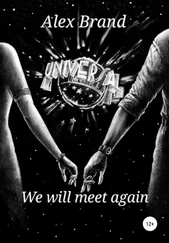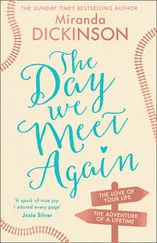The church really hadn’t changed much since those days. In the silence, the frescos crumbled and fell into where all the buildings in Vladas Dr  ma’s book Lost Vilnius went. I stretched out my hands, but my fingertips didn’t disappear …
ma’s book Lost Vilnius went. I stretched out my hands, but my fingertips didn’t disappear …
The next fall, with the frescos of the Basilian Church as a backdrop, my friend, an Estonian from Tallinn, will take a photograph of both her own child and mine. We will not have seen each other since 1991, when political analysts wrote that the Estonians too would fight for their native land to the last drop of Lithuanian blood. I’ll remember this when my Estonian friend arrives. But I won’t say anything. Her boy’s father is married to another woman. But my Estonian friend will still be carrying that man’s photograph stuck in her notebook. A photograph from a financial newspaper — he’s the owner of a large clothing firm. His firm has stores in Vilnius too, but the Estonian says they’re too expensive for her. The boy poked his father’s picture in the notebook with a needle. I will keep the picture of both our children with the backdrop of the Basilian courtyard in my kitchen for a long time, next to a certain other souvenir. That souvenir is a clear plastic dome with Chicago’s skyline beneath it. When you shake the dome, plastic snow (like real snow) falls on the skyscrapers.
Resurrections of Rainy Days at a Tourist Resort
I was about five years old the first time I was in Palanga. The streets of the town didn’t remind me then of a stage set for a play about tourists, but now, in June, they certainly do. The town is deserted. The actors, having finished acting out the sorts of passion that can only be aroused in rented wooden vacation houses, are resting far away, backstage, far from the sea. The town is deserted. Real rain is pouring on the decorative villas. Real wild strawberries are blooming everywhere. Cotton curtains, crumbling like waffles in your suitcase after a long journey, hide damp rooms. You don’t need to see; you remember what’s inside them: walls colored with oil paint, mattresses on springs, and bare electrical wires and outlets (more likely to bring to mind the kommunalka of Stalin-era films than childhood). There are tennis courts next to the abandoned sanatoriums/stage sets, spotted with patches of leftover red gravel and the occasional umpire’s platform that hasn’t fallen down yet. When a place intended for intense activity becomes neglected, the sight of it makes one sad and anxious at the same time. Probably because the absence in it is so tangible.
When I was five, next to those same courts, my friend tickled the bare foot of an umpire up on his chair, right in the middle of a match. Keeping his eyes on the match and without taking the whistle from his mouth, he asked, “Want to get it in the teeth?” At the time, and in many situations afterward, having an excellent sense of self-preservation, I simply remained an observer. My friend now lives in America, by the way, with very sturdy teeth, even if they aren’t hers, and likewise in a resort by the seaside. Her own teeth began melting like snow when she worked in the Far East, because the water there didn’t contain fluoride. At intervals thereafter, her teeth’s nerve endings had to be pulled out and ground down to supposed nonexistence; finally, she got a set of porcelain jaws put in. After something like that, a person truly becomes an other. It’s like being reincarnated into an artificial version of your own face. I dream of perfect teeth myself, but I happen to think that if the Inquisitors of Spain have also been reincarnated, they’ve come back as dentists. How else can you explain those signs, those four teeth — drawn the size of melons — next to nearly every dentist’s office in Lithuania: invariably molars, invariably with two roots, one with a red arrow sticking out of it? You’re given to understand that if you don’t immediately open the door to this office, that red pain will settle into the other root too, and then even deeper, into everything that’s still alive in you and so can still be hurt. It would be far better to hang up a sign showing four sliced melons, each grinning with black seeds.
There by the ocean, my friend eats salmon and probably plays tennis herself now. To me, tennis players always seemed the most stylish of athletes. Likewise, to me, Nabokov always seemed the most stylish of writers who played tennis: “This time the ball bounced sufficiently close. Franz threw himself forward, raised his racket like an axe, struck, but nothing happened.” ( King, Queen, Knave , from the original, Russian version.) Those novels, even those sentences, in which nothing much happens, are extremely meaningful because they’re free of events treacherously pushing the text toward reality. Despite the fact that reality does have some rather unexpected connections to art (like sex to children). Nabokov’s comparison of a tennis racket with an axe appears for three reasons: the similarity of the gestures involved; because Franz plays clumsily and with difficulty; and then — most importantly — because even in that sentence, the reader (not knowing why) remembers that Franz is playing this game with his lover’s husband, whom he has just about decided to murder.
One is threatened with many forms of disgrace, playing tennis. Sometimes the ball disappears. Someone swings a racket (like an axe), the ball flies over the fence, and not even its impudent yellow is enough to save it from the great beyond. You can wade through the dandelions past the court until dark: it’s not there. This leaves all the players with a strange feeling of mortification. Which is always the case when things disappear before your eyes — combs, erasers, a shoehorn, or the sandwich you just buttered.
It’s best to stay at a resort for seven days, six of them “sincerely” rainy. (I stole that “sincerely” from a neighbor of mine. It was raining like it meant it then, too. I smuggled the word out of her house like a kleptomaniac with spoons in her pocket.) When it’s raining, you start counting time not in hours or minutes — as do people who work too much, or people condemned to death — but rather in bursts of remembering the responsibilities you’re ignoring, in clouds of distractedness, in books that must be read for the third time. Joseph Brodsky was correct in observing that reading a tedious book is not much different from doing nothing at all, so far as boredom is concerned; and nowhere is this more true than at the seaside.
By chance I happened to arrive at the same vacation lodge in Palanga where I had spent three days of my honeymoon a number of years before. The wallpaper hadn’t changed. The days — yes. Water started leaking through the ceiling one night; I set the vegetable drawer from the refrigerator under the drip. Actually, the lodge had changed in little ways: a couple of luxury rooms had appeared, along with a Chinese restaurant featuring “delicious dishes created by a chef from Peking.” Its small, staunchly damp tables with chairs leaning face down against them stood empty all week. One day, when the sun peeked out, the chef brought out two large (flying) saucers of his own cooking and ate outside — alone, with a sad expression. An ant ran over his hand. He brushed it off with a quick gesture, or, more accurately, erased it like a tiny hieroglyph.
Solitude, images, and smells become more intense in the rain, just like when you have a high fever. Going down a side street toward the sea after dinner, one is quite capable of considering “a spider and a little tree” to be one’s acquaintances, as does a character in The Idiot . The rain-washed moss beyond the town looks luminescent. Through the sparse pines in the forest you see a bicycle leaning against a tree. From a distance, it looks silver, jeweled — belonging to Nobody. You have an unpleasant thought, and so raise your eyes up into the tree’s branches. Nothing hanging from them but suicidal raindrops.
Читать дальше
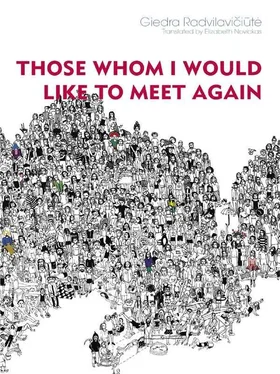
 ma’s book Lost Vilnius went. I stretched out my hands, but my fingertips didn’t disappear …
ma’s book Lost Vilnius went. I stretched out my hands, but my fingertips didn’t disappear …